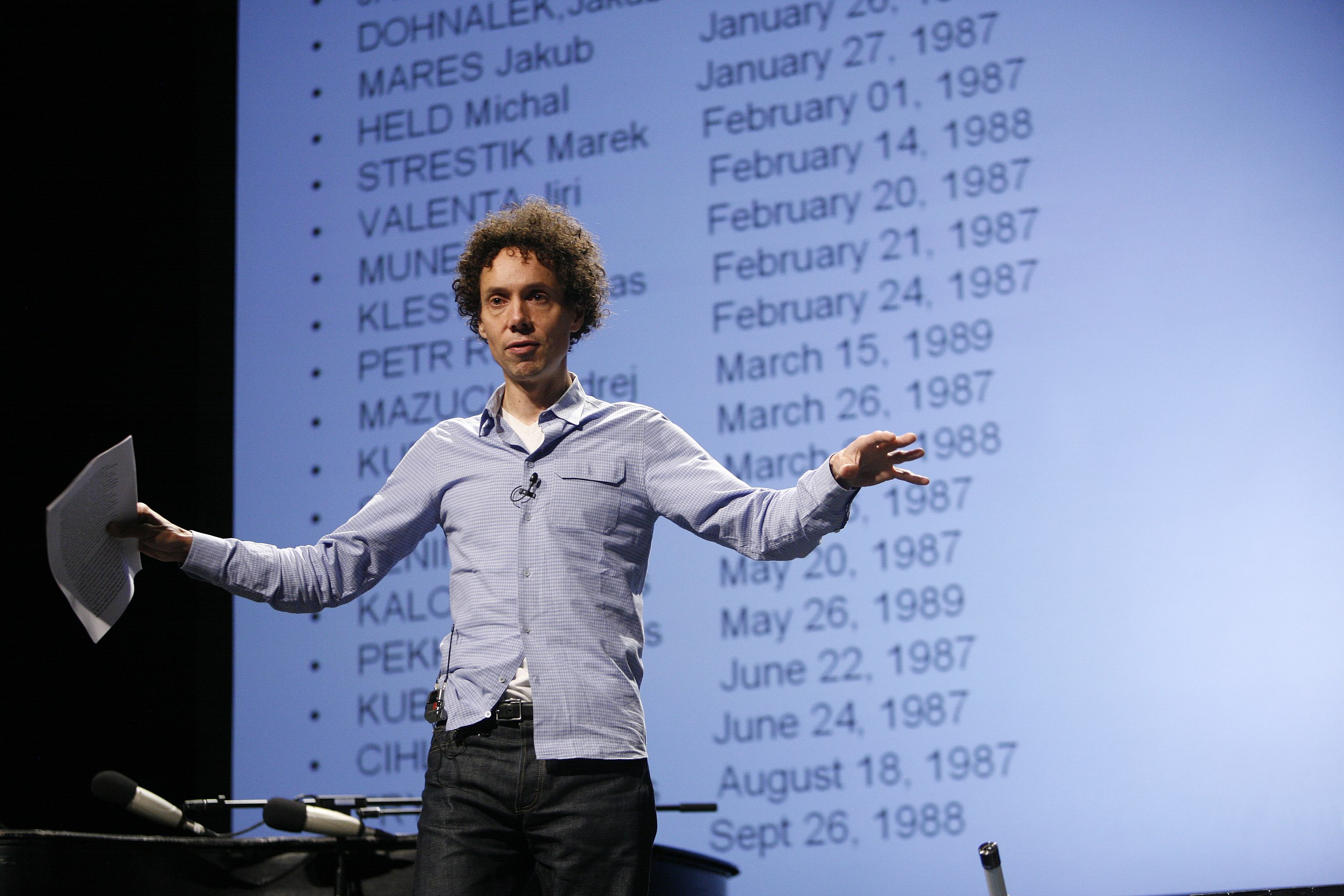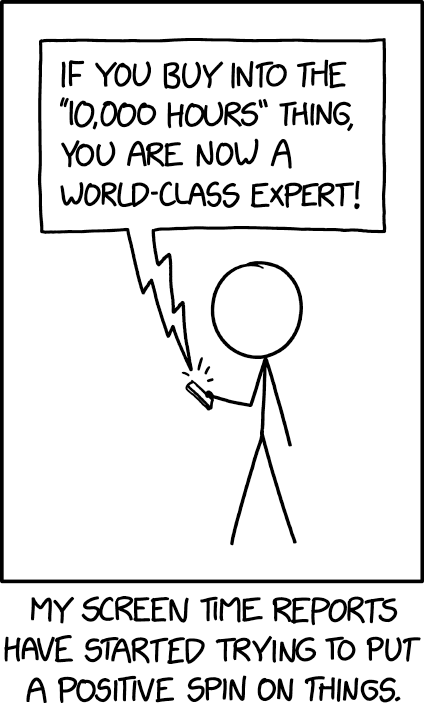Practice
“Practice isn’t the thing you do once you’re good. It’s the thing you do that makes you good.”
— Gladwell (2008)

You might have heard of the “10,000 hour rule”; it suggests that it takes 10,000 hours of practice to become an expert in a field. However, recent research suggests that it is not just the quantity of practice that matters, but the quality of practice1
If you are looking for a task to practice now, see the

The idea of “Deliberate Practice” was described by Anders Ericsson to emphaise the importance of focused, structured practice in developing expertise (Ericsson et al., 1993).
Deliberate Practice is:
Purposeful and Structured: Practice sessions are specifically designed to improve performance, often focusing on particular aspects of a skill.
Includes Feedback: Immediate feedback is essential, allowing the individual to understand their performance and make adjustments.
Challenging: The tasks undertaken are neither too easy nor too difficult but are optimally challenging to maximize learning, and require:
Focus and Attention: High levels of focus are required, and practice sessions are often mentally challenging rather than mechanically repetitive.
Learning to practice
At school, teachers take responsibility for designing a structured scheme of practice for children. At university, you are expected to take more responsibility for your own learning.
The “Practice” element of this scheme is designed to help you develop some of the habits and skills you need to develop your own deliberate practice.
Categories
Practice activities are organised into six categories:
Studying: Developing effective study skills and learning strategies.
Thinking: Building critical thinking and psychological reasoning skills.
Writing: Improving academic writing through practice.
Speaking: Building confidence in oral communication.
Growth: Personal development and career planning.
Assessment Practice: Formative practice for summative assignments.
How practice tasks work
Tasks are available for self-paced completion. Staff may recommend specific tasks when they relate to current lecture or workshop content.
Some tasks are designed for individual work, others involve collaboration.
Most tasks should take no more than 30 minutes, though some assessment practice tasks may take longer.
When you have completed a task, you can upload your work to Psybot for immediate feedback.
All materials needed for the tasks are available on this website. Tasks are organised by category and can be found on the main tasks page.
Recording your practice
You can record your practice work with PsyBot to receive feedback.
When you upload work, Psybot provides instant feedback, comparing your work to model answers or asking follow-up questions to extend your thinking.
Staff can see the work you’ve uploaded and the feedback you received. Visit staff during office hours to discuss your work or seek additional help.
Getting human feedback
All staff in the school offer “office hours” each week where students can ask questions or seek feedback on their practice work.
References
Footnotes
The 10,000 rule was popularised by Malcom Gladwell in Outliers, based on the work of Anders Ericsson and others. A meta-analysis (i.e. a review of all the quantitative studies available, Macnamara et al., 2014) suggested that the relationship between practice and expertise was not as strong has had been claimed. However, deliberate practice remains the primary predictor of expertise in many fields, and is typically the only factor which we have individual control over. Inherited general intelligence or working memory capacity may also predict expertise, but we can’t choose our parents! For a detailed discussion of the evidence, see Hambrick et al. (2020).↩︎